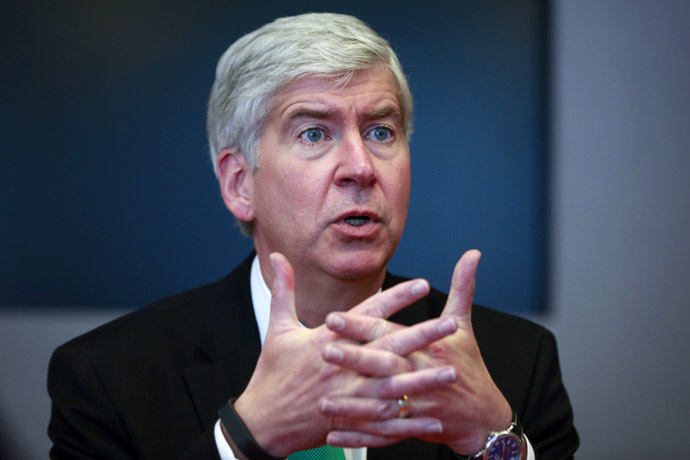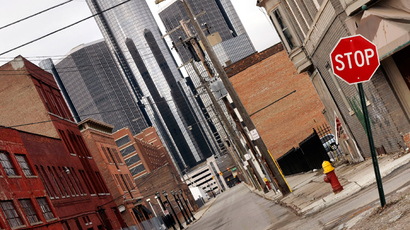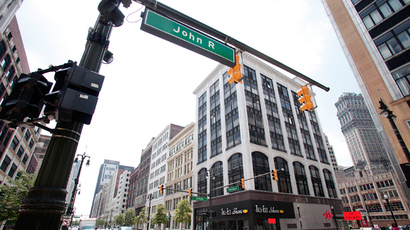Federal judge lets Detroit move forward with largest bankruptcy in US history

A federal judge ruled Tuesday that Detroit, Michigan is indeed eligible for bankruptcy protection, giving the go-ahead to the once booming Motor City to move forward with plans to restructure more than $18 billion in debt.
Amid reading excerpts from a lengthy decision of more than 140 pages, United States Bankruptcy Judge Steven Rhodes announced during Tuesday morning’s historic hearing that he approved of Detroit’s Chapter 9 filing, in turn authorizing the largest municipal bankruptcy ever in the US to proceed.
Detroit — once the automobile manufacturing capital of the world and an icon of Americana — has fallen heavily into debt during the last few decades, so much so that Governor Rick Snyder hired bankruptcy expert Kevin Orr to man the helm of the city in March and assume the role of emergency manager. Four months later, though, Orr’s attempt to salvage the city proved to be futile, and Detroit filed for Chapter 9 protection this past July.
In order to decide if Detroit could be awarded protection from creditors, Judge Rhodes was forced to find the city insolvent and agree that it was authorized to file for bankruptcy in the first place. Additionally, Rhodes had to find that city officials either negotiated with creditors in “good faith” or that those negotiations were impractical.
"The court finds that Detroit was and is insolvent,” Rhodes said around one hour into the hearing, Detroit Free Press journalist Nathan Bomey reported from the city’s Levin Courthouse

Moments later, according the Free Press’ Brent Snavely, Rhodes ruled that the court “finds that this case was filed in good faith and should not be dismissed,” allowing the city to begin restructuring plans immediately.
"The city's debt and cash flow insolvency is causing the city's 700,000 residents to suffer hardship,” Rhodes continued, adding, “This situation has proved unworkable,” according to Bomey.
Earlier in his statement, Rhodes told residents and reports gathered in a packed courtroom and two overflow facilities that “The city of Detroit was once a hard-working diverse, vital city,” but mounting crime rates, “spreading blight and a deteriorating quality of life” has ravaged it in recent years.
"The city needs help,” added Rhodes, who admitted that crucial public services, including fire and police departments, had been drastically impacted by the city’s growing financial woes.
Had the city not deferred scheduled payments, Rhodes acknowledged
at one point, Detroit would have run out of cash on June 30, just
days after it filed its Chapter 9 petition in federal bankrupt
court.
Although the city’s readjustments plans are uncertain at this point, Rhodes said while reading his ruling that Detroit may be legally allowed to forgo making payments to pensioned city employees as part of its restructuring efforts. The city previously reported that its current liabilities include $5.7 in retiree healthcare benefits and another $3.5 million in pensions.














